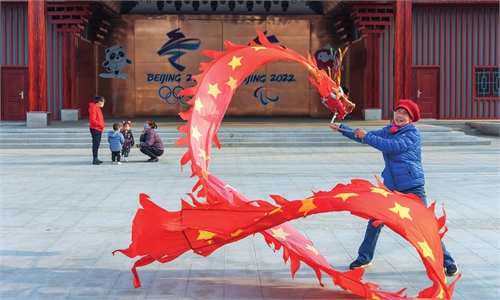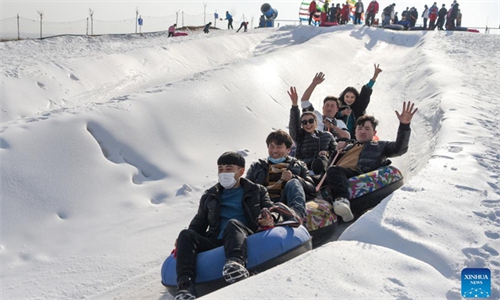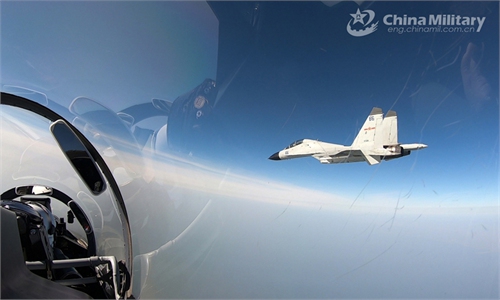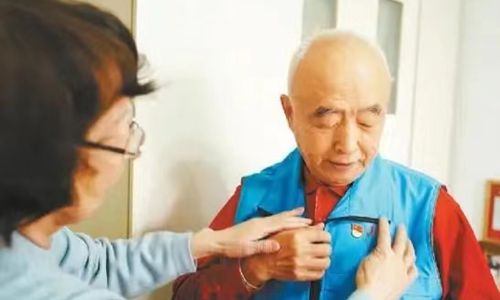China forms biggest-ever Winter Olympics team with 176 athletes; Olympic Villages officially open
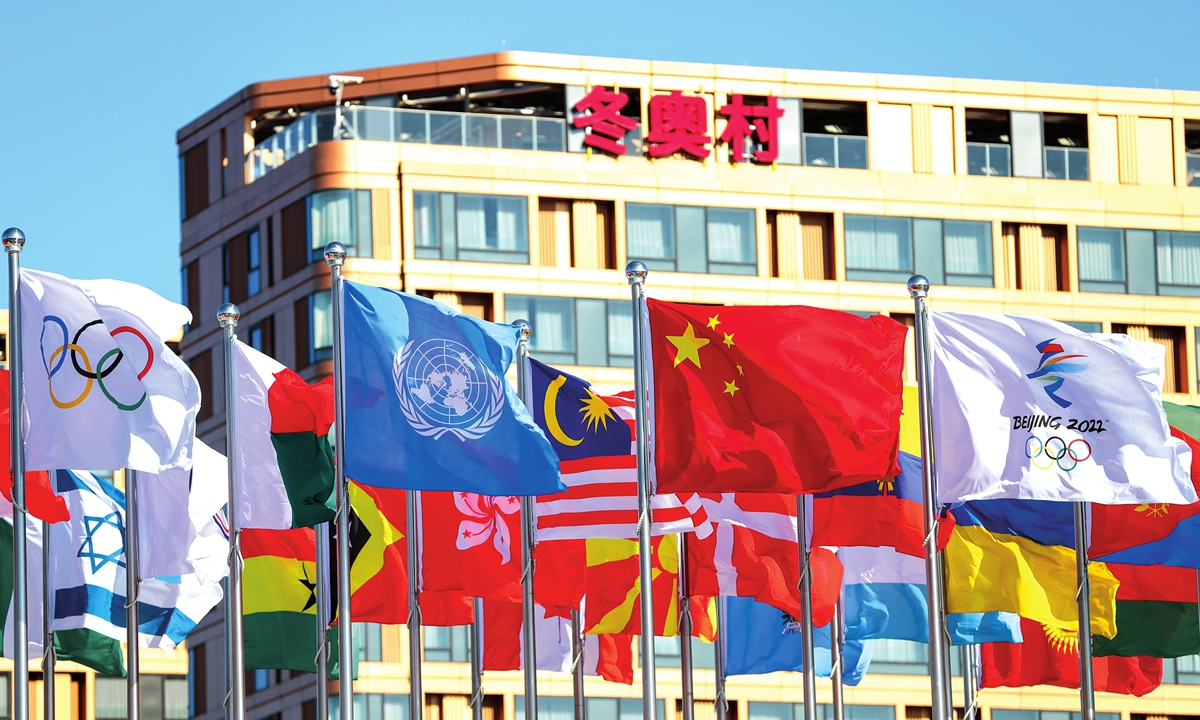
The Team China consists of 387 membrs, of whom 176 are athletes. Among the athletes, 87 are female. There are also 20 athletes from nine ethnic minority groups, including the Tibetan, Uygur and Hui ethnic groups. The youngest delegation member is only 17. The athletes vowed to achieve the best results in the country's Winter Olympic history while demonstrating their strength, perseverance and modesty.
However, just eight days to go before the official opening of the grand sporting event, some Western countries and media outlets' slandering of the event has also reached a new pinnacle. Certain Western countries, led by the US, continue to throw mud at China and at the Beijing Winter Olympics.
Observers noted that those snarling at the Winter Games will only make a fool of themselves by having violated the rights of participating athletes and pit themselves against the international community. They also said that foreign media's hyping and fabrications about the event show disrespect for China's arduous efforts in hosting the Games.
Team China vowed that it will win "ethical, moral and clean" gold medals, and strive to achieve the best performance in the country's Winter Olympic history, demonstrate good spirit, avoid doping scandals and abide by the closed-loop management rules.
On the same day the team was assembled, three Olympic Villages - one in Beijing proper, one in Beijing's northern suburban Yanqing district and one in adjacent Zhangjiakou - officially opened their doors to athletes from all over the world for the Beijing 2022 Winter Games.
The Beijing village will predominantly house athletes competing in sports such as skating, while the Yanqing village will be used for sliding sport and alpine skiing athletes. The village in the Zhangjiakou competition zone will host skiers, snowboarders and ski jumpers.
The three olympic villages have distinctly different characteristics. The Beijing village embodies traditional Chinese features, showcasing nearly 300 intangible cultural heritage items; while the Yanqian village brings a perfect combination of Chinese and international styles, where modern guest rooms are built inside a Chinese-style courtyard. Zhangjiakou is a tech-savvy village, where rooms are equipped with intelligent electronic locks, infrared induction and other functions. The memory foam bedding can provide the best support for occupants, whether they are sleeping or sitting.
Meanwhile, as more athletes are to arrive, Olympic volunteers are in charge of leading their way to their rooms. One village volunteer surnamed Li told the Global Times that those who have not taken nucleic acid tests are not allowed to leave their accommodation.
The three villages have also adopted strict COVID-19 prevention measures. For example, the Yanqing village has formed special logistics teams who are in charge of transporting athletes' belongings and disinfecting them in line with the rules.
A ceremony marking the opening of the village was scheduled to be held, but was later canceled because of COVID-19 concerns, Qu Songming, manager of the plaza area in the Beijing Olympic Village, told the Global Times.
The relevant cities are also gearing up to prepare for the event. Officials from the China Meteorological Administration said on Thursday that it will enter "special work status" for the Winter Olympics from Thursday to February 21. The Hebei Meteorological Administration said it will dispatch people on duty around the clock, closely monitor the climate and give technological support for the event.
Liu Pengfei, spokesperson of China's Ministry of Transport, said at a press conference on Thursday that the ministry will strictly stick to COVID-19 prevention measures regarding every procedure of the Beijing 2022 Winter Olympic Games.
Commenting on the official opening of the Olympic Villages, Zhao Lijian, spokesperson of the Ministry of Foreign Affairs, said that from 2008 to 2022, the Chinese capital's enthusiasm embodied in the slogan "Beijing welcomes you" has never changed. We believe that just like the Beijing 2008 Olympics, the Winter Olympics will also shine around the world, Zhao noted.
Continuing slander
During a phone call between Chinese State Councilor and Foreign Minister Wang Yi and US Secretary of State Antony Blinken, Blinken said the US will cheer for its athletes participating in the Beijing Winter Olympics.
But just one day before the phone call, the US State Department was considering allowing its embassy and consulates to authorize the departure of their employees in China, citing "China's epidemic situation", a move seen by experts as only exposing the true intention of Washington in sabotaging the Winter Olympic Games and its inconsistent China policy.
Earlier, Washington had staged a "slander campaign" against the Beijing Winter Olympics, saying it would not send diplomatic or official representatives to the event. However, the country was found to be seeking visa applications for 46 officials for the event in mid-January, expanding on a previous list of 18.
Li Haidong, a professor at the Institute of International Relations of the China Foreign Affairs University, told the Global Times on Thursday that the US' two-faced flip-flop is eroding its credibility in front of the world, and is a slap in the face of its allies, such as Australia and Japan, which followed Washington closely and made a similar decision.
It even mirrored Washington's chaotic state of mind toward China, noted Li, adding that if the US cannot be consistent on the Olympic Games, how can one expect it to form a clear, unified China policy?
During the phone call with Blinken, Wang urged the US to stop interfering with the Beijing Winter Olympics.
While Beijing gears up for the Games, Western media such as BBC, CNN and Wall Street Journal have also stepped up their smear campaigns. The outlets targeted the strict COVID-19 prevention policies for the event, claiming such policies caused anxiety to athletes, and linked the Games to old rumors of "human rights abuses" in China's Xinjiang region, and allegedthat China would use the chance to monitor participants' phones.
Xu Guixiang, the spokesperson of the regional government of Xinjiang Uygur Autonomous Region in Northwest China, said at a Thursday conference that Western countries' attempt at throwing a spanner into the Winter Olympics is a politicization of sports, an attempt to sabotage the rights of athletes and a blasphemy against the Olympic Charter.
For those complaining about the closed-loop management, they have to realize that those measures were settled under negotiations between the International Olympic Committee, the Global Association of International Sports Federations and the Beijing Organising Committee for the 2022 Olympic and Paralympic Winter Games. In addition, those measures are recognized and accepted by all delegates, Ding Bocheng, who participated in organizing the Summer Games in 2008 and is a member of the team for the 2022 Olympic and Paralympic Winter Games in Beijing, told the Global Times on Thursday.
Athletes were also aware of those policies before they came to China, which means it is inappropriate for them to complain about the policies now, said Ding.
The Guardian newspaper also published a report on Monday claiming that concerns are mounting over a mandatory health app for athletes, after a new report revealed the app contains security flaws and a list of "politically sensitive" words that have been marked for censorship.
Ding said that according to his understanding, if athletes step out of the closed-loop area, the relevant authorities will be informed via their signals, but nobody is monitoring their daily lives, nor intruding on their privacy.
A spokesperson for the Beijing Organizing Committee for the 2022 Olympic and Paralympic Winter Games said on January 18 that when athletes use this app for the first time, the application will ask for the user's authorization, adding that the app has also been scrutinized by the app platforms of Google, Apple and Samsung. All personal information will be encrypted to ensure privacy.
As the world continues to face the onslaught of COVID-19 and the ensuing impact on the economy, it is not easy for Chinese government to host such a large-scale event, which requires massive input and sacrifices from the staff, said Ding. He hoped that guests and foreign media would appreciate this hard work, adding that jumping on trivialities or concocting rumors are not fair on the organizers.
